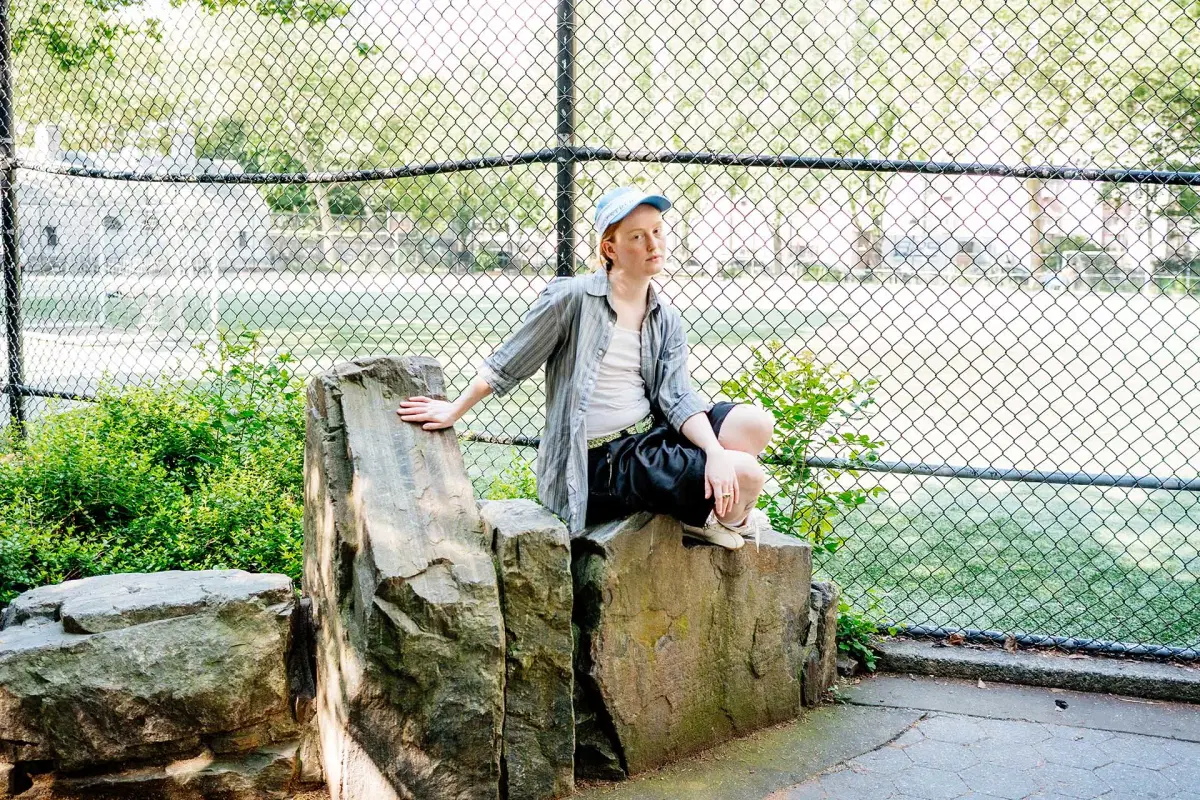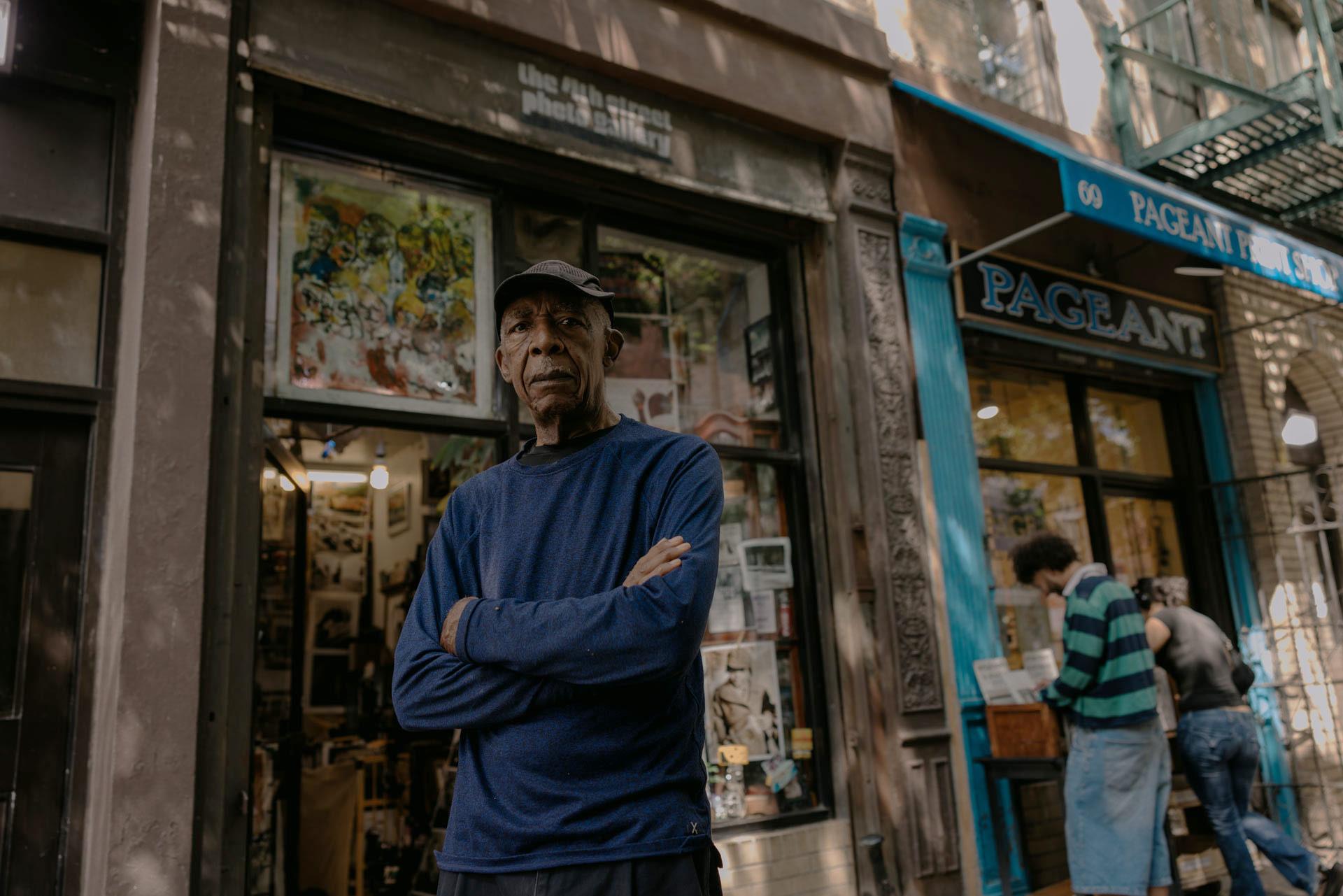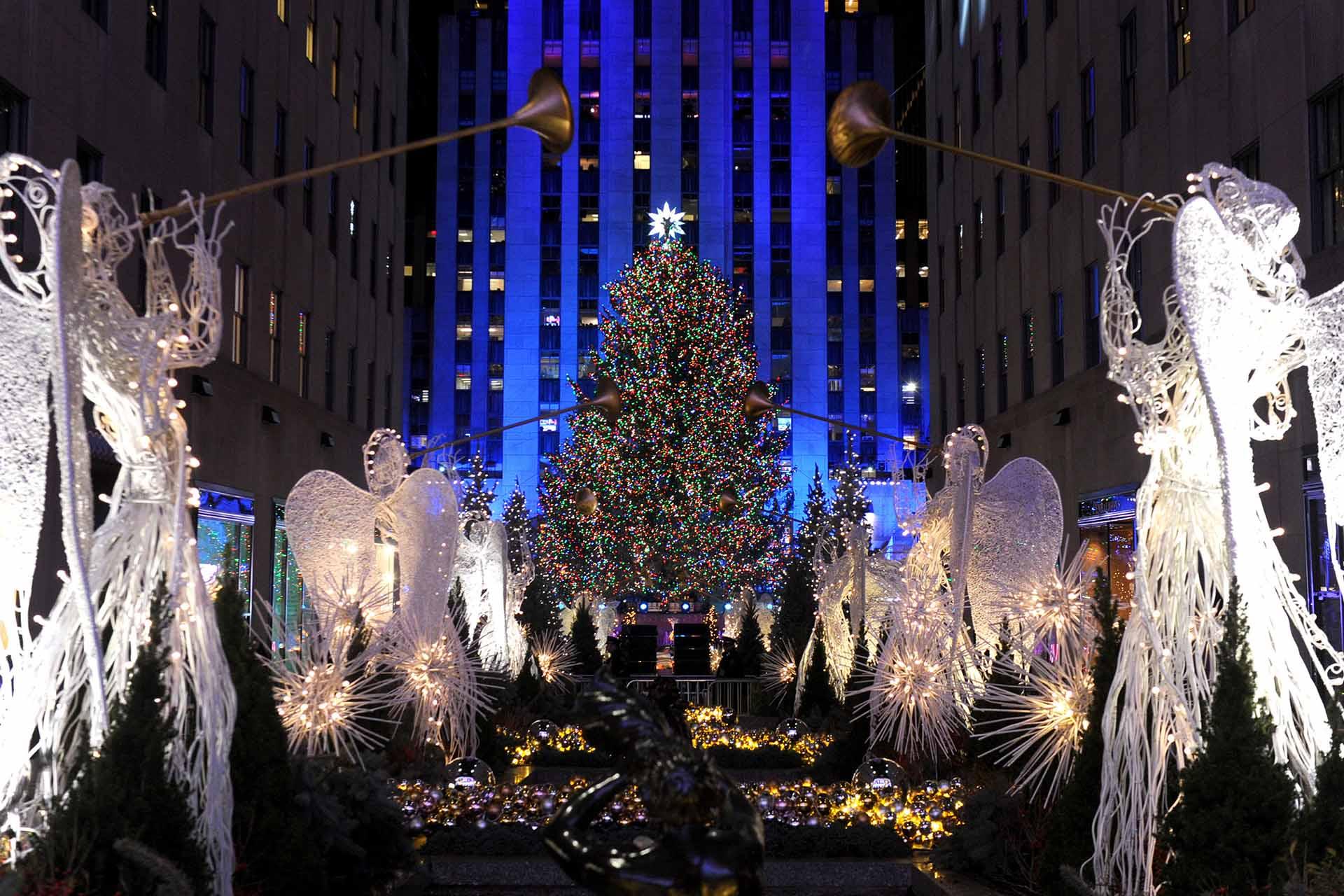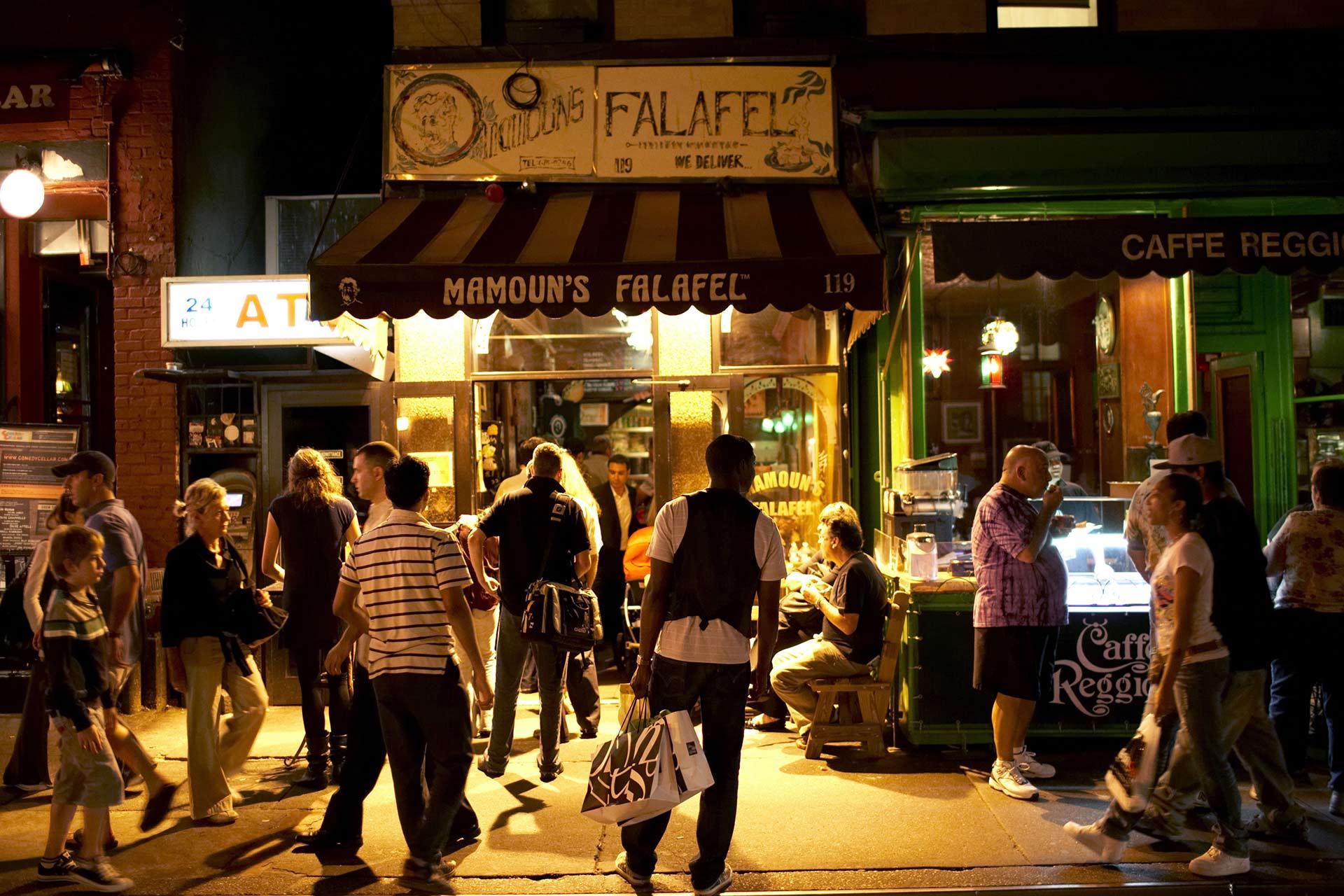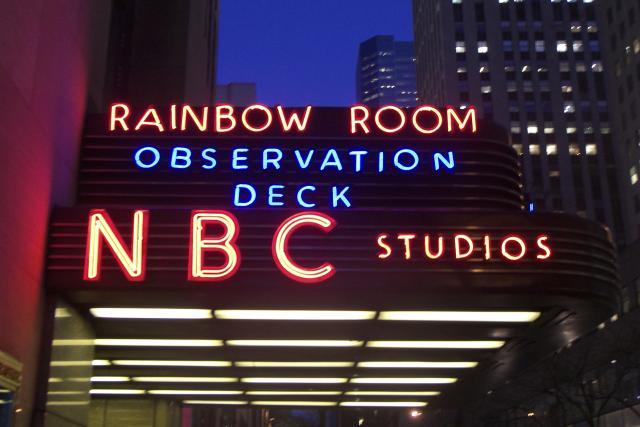Bobbi Salvör Menuez isn’t afraid to embrace the unconventional. Born and raised in Brooklyn, the 32-year-old artist has built a career that defies definition: they’ve had featured roles in indie films and hit TV shows including Euphoria and Transparent; worked as an editor at large for Purple, the world-renowned French fashion magazine; and have creatively collaborated with institutions including MoMA, Knockdown Center and Whitney Museum. But what keeps Menuez (who is nonbinary) grounded is their grassroots community organizing work.
As one half of the team behind the fashion-forward fundraising project Mother Daughter Holy Spirit, Menuez is no stranger to leveraging their connections within the entertainment world to generate much-needed material support for LGBTQ+ social justice initiatives. The project, which raises money by selling original T-shirts and donated luxury clothing from celebrities and designers, has raised thousands of dollars for the Trans Justice Funding Project in just a few months.
We caught up with Menuez after a star-studded MDHS fundraising gala—which was graced by the likes of Chloë Sevigny, Fran Tirado, Richie Shazam and Madonna—to talk about the importance of turning visibility into direct action.
How did growing up in New York City shape your understanding of queerness and of gender?
Bobbi Salvör Menuez: Queerness, for me, was always really normalized growing up in New York. Even though my parents are straight, I always had queer elders around me, and I would have babysitting sleepovers at my parents’ queer friends’ houses. It was something that felt really normalized—New York is rich in queer community and queer history. I had the exposure to know that [queerness] was one way that people are and express themselves from a very young age. That was really supportive for me and my own self-expression and self-knowledge journey.

Who are some queer New Yorkers who have inspired you?
BSM: When I was younger, I had this uncle, Blair—he was not biologically my uncle, but he was a gay man living with AIDS, and he was very dear to me. There was a certain kind of flamboyance of expression, of loving and relating that he always offered me. I got to meet Ceyenne Doroshow, and she is this mother to so many people. Also, Cecilia Gentili; she was so funny, sparkly and loved her community in a vibrant way. I’m good friends with Tourmaline, who I really think of as the reason we all get to know the story of Marsha [P. Johnson].
What’s the origin story of Mother Daughter Holy Spirit, and how did you decide on supporting the Trans Justice Funding Project?
BSM: I’ve known John [Mollett], who’s my co-organizer, for many years. In 2021, I was like “Hey, I want to do a fundraiser for GLITS,” which is Ceyenne’s org—Gays and Lesbians Living in a Transgender Society. I said, “I have some clothing from designers I worked with that I don't wear anymore. Maybe we can auction it.” Then we thought, “We should ask other people to donate stuff.” One thing led to another: “Hunter Schafer’s going to donate a watercolor art piece; Rowan Blanchard’s going to donate these Jimmy Choo shoes; Ryan McGinley’s going to donate a print; Chloe Wise is going to donate a painting.” We raised around $20,000 for GLITS, just the two of us kind of piecing it together.
John and I stayed in touch, and then each new person that entered the constellation brought with them new possibilities. Julie Ragolia (who came on as our stylist) works with Pedro Pascal, so suddenly we were launching the whole project by having him wear one of our shirts on Jimmy Fallon, which has a specific kind of impact. The shirt he wore was a design from Pippa Garner, a trans artist who just passed away. I [later] zeroed in on Trans Justice Funding Project—they have this unique capacity to support trans-led justice initiatives in all 50 states that are focused on the intersecting issues that are specific to their community, wherever they are.
What other trans-focused organizations in New York would you suggest supporting?
BSM: The Sylvia Rivera Law Project is amazing. Also, GLITS, the LGBTQ Center, Ali Forney Center, SAGE, Callen-Lorde, the Audre Lorde Project, the Hetrick-Martin Institute, the Trevor Project, the NYC LGBT Historic Sites Project and Doll Invasion.
There’s an ongoing discourse within the trans community about how visibility alone isn’t enough to protect trans people. How do you toe that line between visibility and direct action in your work?
BSM: I love to think of something from my sister Bhenji Ra, who has this great quote that visibility without protection is a trap. The question of what it means to “protect the dolls” is a big thing right now with the Conner Ives shirt going viral—he’s also one of the donating designers and supporters of our project. I think putting real resources toward self-directed justice actions such as food, housing and immigration support, which is what I believe the Trans Justice Funding Project is doing, is critical. Visibility isn’t enough, but I do think it’s part of the conversation that has value. Being a young person in New York and seeing visible queer and trans people had a positive impact on me—I can’t deny that. Using your skill set toward this collective liberatory vision is meaningful and has a positive impact, even if it might be hard to trace in a perfect linear way.
What are some of your queer (or queer-friendly) venues in the City?
BSM: We had our party at Gitano, which is a newer venue, and they get to boast having the biggest disco ball in New York, which is very fun and camp. They were great partners on the party and have a history of supporting, hiring and paying trans artists. Mars Hobrecker was one of the party producers, and he produces other events like Doll Invasion, which did a party at the Edition Hotel in Times Square recently. I think Performance Space New York is a very queer supportive institution.

Where in the City do you go to find peace and to refill your creative cup?
BSM: I live near Prospect Park and grew up having my birthdays there as a kid, so I really love Prospect Park. I want to shout out this very cute little puppet theater in my neighborhood called Puppetworks. I feel it really nourishes my inner child, although it’s mostly real children there. I love going to Riis Beach—that feels like a special place to congregate. I do love going to Green-Wood Cemetery, I go there quite a bit. I love Bridget Donahue Gallery downtown, and I love Company Gallery. Both show really interesting artists, including a good number of queer artists. I love going to the Met, a little moment at MoMA or going up to the Cloisters.
This interview is a part of our Trans Voices series, in which trans people in NYC share their unique backgrounds, experiences and perspectives on the City. Find that and other LGBTQ+ content here.
Chala June (@chala.gram) is a genderqueer Congolese American writer, chef and cultural artist based in Brooklyn. Their work examining the intersections of culture and identity has appeared in publications including Bon Appétit, Them and Condé Nast Traveler.

